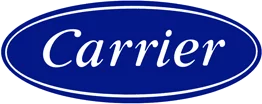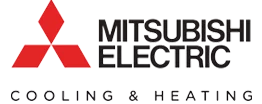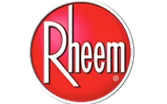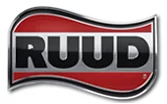The Cool Before the Storm: Preparing Your AC for Hurricane Season

Your Heating, Ventilation, and Air Conditioning (HVAC) system plays a crucial role in maintaining comfort and indoor air quality within your home or commercial space. However, like any mechanical system, HVAC systems are prone to wear and tear over time, necessitating timely repairs to prevent costly breakdowns and ensure optimal performance. But do you know the top signs to look for that signal HVAC issues? Ignoring these signals could lead to more extensive damage and compromise your comfort and safety.
Take a few minutes to learn what to look, listen, or smell for, so you can take prompt action before any significant damage is done.
Weak Airflow
When the system is working properly, airflow from the vents should be strong and steady. It should also be consistent throughout the house or commercial space. If you notice a decrease in the airflow, an inconsistent flow, or that some vents have a stronger airflow than others, this may indicate a variety of issues. Blocked or clogged air filters, malfunctioning blower motors, or ductwork obstructions can all impede the HVAC system’s airflow, which reduces system efficiency and comfort levels. By addressing these airflow issues promptly, you can prevent strain on the system and improve indoor air circulation.
Strange Odors
When you turn on the heating part of the HVAC system after months of no use, you may notice a slight odor at first. This can be normal because the system hasn’t been used in so long. But if you are using your system on a regular basis and begin to notice unpleasant odors emanating from the vents, this is a clear indication of potential HVAC issues. Musty or moldy smells may indicate mold growing within the system itself or in the ductwork, either of which poses health risks and compromises indoor air quality. An odor like something burning could indicate overheating components or electrical issues, both of which require immediate attention to prevent safety hazards such as fires.
If strange odors are coming from your vents, for health and safety purposes, you should turn the unit off and have a technician thoroughly inspect your system and make any necessary repairs before using it again.
Unusual Noises
You will likely always notice some level of noise when the HVAC system is on. This is normal. Unusual or persistent noises such as grinding, squealing, or banging should not be ignored. These could indicate worn-out or malfunctioning components such as bearings, belts, or motors. Sudden noises should also be checked out, even if quiet or infrequent. Ignoring these noises may lead to further damage and more costly repairs down the line.
Fluctuating Temperatures
Is one room ice cold while another feels like a sauna? Inconsistent temperatures throughout the home or commercial space often point to underlying HVAC issues. A malfunctioning thermostat, faulty sensors, or refrigerant leaks can disrupt the cooling or heating process and result in uneven temperature distribution. Ductwork may leak, or the ductwork or HVAC system may not be the right size for the space in which you are controlling the temperature. A professional diagnosis and repair are essential to restore consistent comfort levels and optimize energy efficiency.
Increased Energy Bills
Most of the time, energy bills are the same from month to month each season, with only a few dollars difference. When there is an increase, most people can trace it to an increase in usage or notice from the energy provider that there would be a rate increase. If you discover a sudden spike in energy bills without a corresponding usage increase or rate increase, this may be a red flag that your HVAC system is operating inefficiently. Common culprits may include dirty air filters, refrigerant leaks, or malfunctioning components that cause the system to work harder to maintain the desired temperatures. Addressing these issues promptly can help reduce energy consumption and lower utility costs.
Frequent Cycling
You may not need an energy bill to tell you the system is working overtime. If you suddenly notice that your system is constantly running, this may indicate one of the culprits mentioned above or others. Excessive cycling, where the HVAC system frequently turns on and off, can indicate various issues, such as thermostat problems, inadequate airflow, or refrigerant leaks. This constant cycling strains the system and compromises comfort and energy efficiency. Professional diagnosis and repair are necessary to identify and address the underlying cause.
Unit Blows Hot Air
If the system blows hot air when it is set to cool or cold air when it is set to heat, this is a sign that something isn’t right with the system. It could be a lack of refrigerant, a thermostat problem, or another issue. A professional diagnosis and repair are critical to getting the system working properly again so you can live in cool comfort.
Thermostat Isn’t Working
Whether the thermostat won’t turn on, won’t adjust the temperature, or doesn’t seem to be communicating with the system at all, a nonworking thermostat means that your HVAC system won’t work properly, if it works at all. The HVAC system requires input from a properly working thermostat to control the temperature inside the house or commercial space accurately.
Before calling for repairs, check the thermostat to see if it requires batteries. If it does and after changing the batteries, you still can’t get it to work right, you’ll need to have a technician diagnose the problem and make the necessary repairs.
Refrigerant Leaks
Refrigerant leaks are always a problem, but they can be a serious issue if the HVAC system is older and uses freon, as freon is poisonous. A refrigerant leak will result in moisture around the unit. However, moisture around the unit can also be from a blocked or clogged condensate drain, so it is important to contact a professional to confirm and repair the cause of the moisture.
High Humidity
While most people understand an HVAC system’s primary purpose is to cool the air in a house or commercial space, it also serves another purpose: to dehumidify. This is important as indoor humidity can lead to constantly damp surfaces, which can cause mold and mildew. If you notice the humidity rising indoors, your HVAC system may need repairs.
Systems Older Than a Decade or Frequent Issues
While it would be nice to install an HVAC system that would have a life as long as the home is cooling, the fact is these systems have a much shorter life span than our houses. Typically, you’ll realize that an HVAC system is at the end of its lifespan because it will begin to have frequent issues. Frequent issues may also be an indication of a defective system. If your system has frequent issues, it may be best to discuss replacing it with an experienced and knowledgeable technician. While installing a new HVAC system can be expensive, it is usually less costly than constantly repairing issues cropping up with an existing unit.
Take Action and Avoid Potential HVAC Issues
Recognizing and addressing these warning signs promptly can prevent minor HVAC issues from escalating into major problems. Regular maintenance and professional inspections are essential for ensuring the longevity and performance of your HVAC system.
Don’t ignore these warning signals—consulting with a qualified HVAC technician can help diagnose issues early and restore comfort and efficiency to your indoor environment. Contact us today to learn more and schedule an appointment with one of our family of independent contractors.












